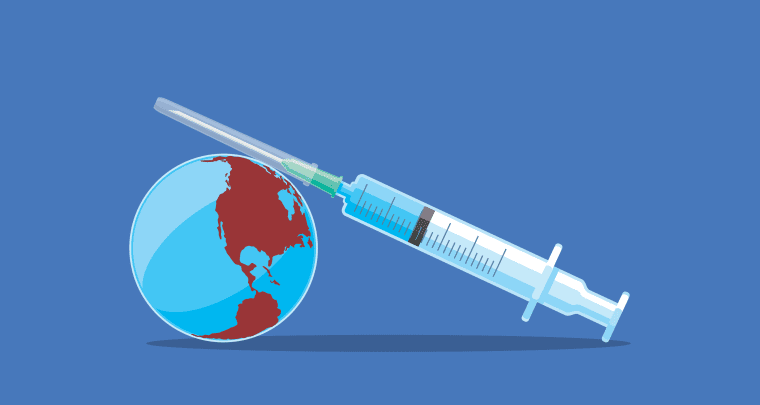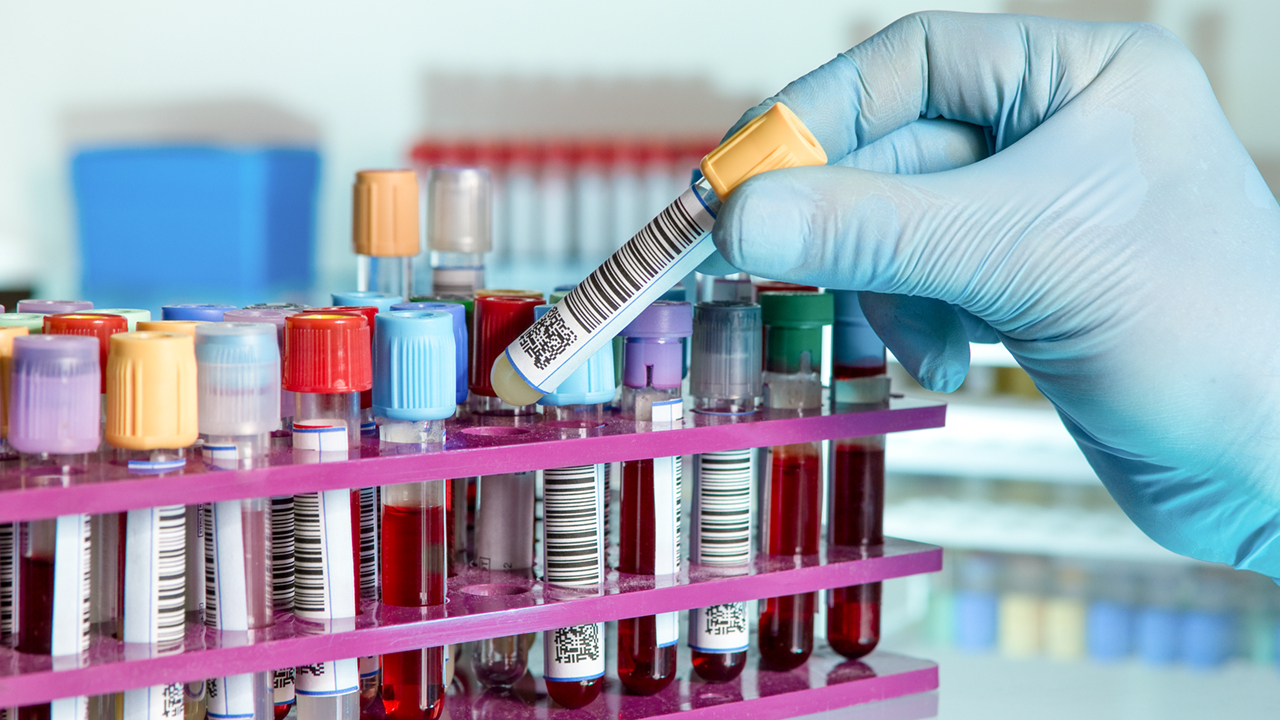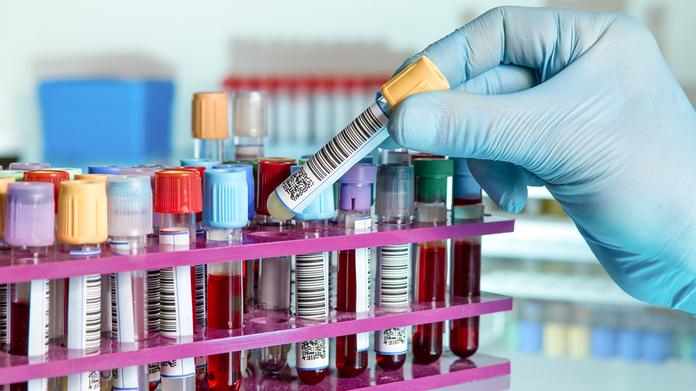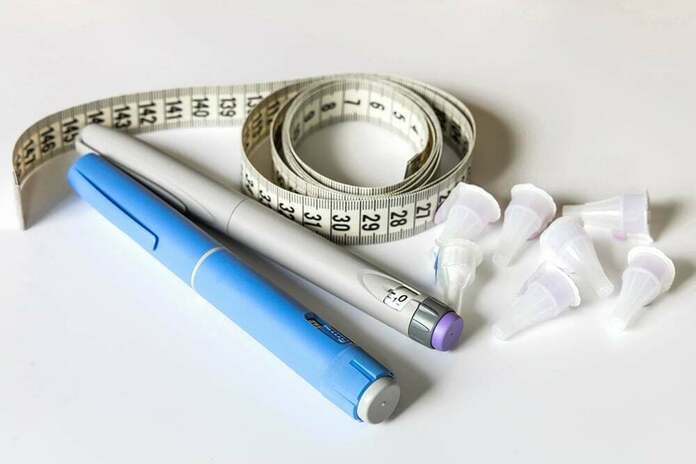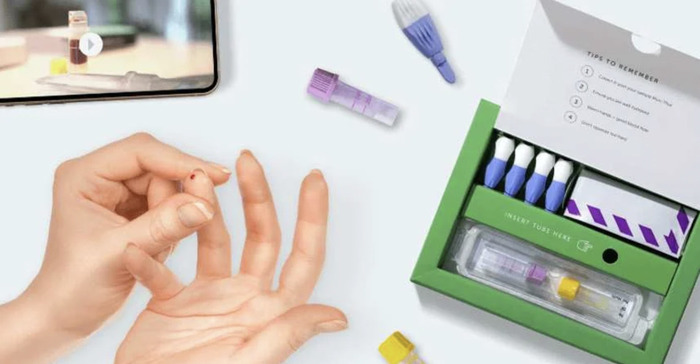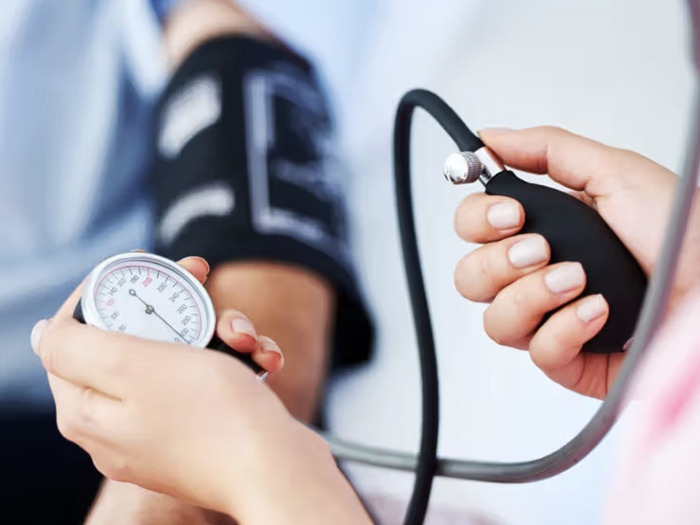Female Fertility Blood Tests: Unlock Insights for Your Reproductive Health
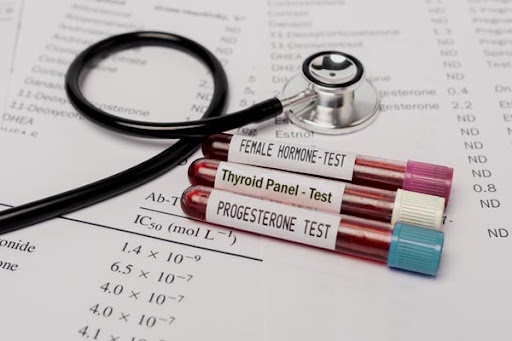
Female Fertility Blood Tests: Unlock Insights for Your Reproductive Health
A female fertility blood test can be helpful for evaluating reproductive health, providing a clear picture of hormone levels that influence ovulation, menstrual cycles, and overall fertility. Whether you're planning to conceive, facing fertility challenges, or simply monitoring your reproductive health, these tests help pinpoint potential imbalances and guide effective treatment. At CompareHealth, we streamline the process of finding the right fertility tests, offering a pathway to informed decisions and optimal reproductive well-being.
What Is a Female Fertility Blood Test?
A female fertility blood test is a diagnostic tool used to measure hormone levels that affect a woman's reproductive system. These tests help identify imbalances that may impact fertility, ovulation, and overall reproductive health. Commonly measured hormones include Follicle-Stimulating Hormone (FSH), Luteinizing Hormone (LH), and Estradiol.
Fertility blood tests may offer insights into ovulation function, ovarian reserve and potential conditions like Polycystic Ovary Syndrome (PCOS), helping you make informed decisions about family planning or fertility treatments.
Types of Female Fertility Blood Tests
There are several types of fertility blood tests available, each targeting specific hormones based on your symptoms, age, and reproductive goals:
- - Progesterone Test: Measures progesterone, essential for supporting early pregnancy and ensuring successful implantation.
- - Follicle-Stimulating Hormone (FSH) Test: Measures FSH levels, which regulate the growth of ovarian follicles and are helpful in understanding ovarian reserve.
- - Luteinizing Hormone (LH) Test: Assesses LH levels, critical for triggering ovulation and managing menstrual cycles.
- - Anti-Müllerian Hormone (AMH) Test: Evaluates AMH levels to estimate ovarian reserve and predict response to fertility treatments such as IVF.
- - Estradiol (E2) Test: Monitors estradiol levels, a form of oestrogen, to understand ovulation and reproductive health
- Comprehensive Hormone Panel: Provides an in-depth analysis of multiple hormones including testosterone, prolactin, and thyroid hormones to give a full view of fertility health. Testosterone is present in small levels in women. High levels can cause acne and abnormal hair growth (hirsutism)
Why Do You Need a Female Fertility Blood Test?
A female fertility blood test is vital for diagnosing and managing reproductive health issues that may affect your ability to conceive. Here’s why it’s important:
- - Diagnose Fertility Issues: Identify conditions like PCOS, ovarian insufficiency, or hormonal imbalances that may be affecting your ability to conceive.
- - Plan for Pregnancy: Understand your ovarian reserve and ovulation patterns to optimise timing for conception.
- - Monitor Hormonal Treatments: Track the effectiveness of fertility treatments like in-vitro fertilisation (IVF) or hormone therapy.
- - Prevent Health Complications: Early detection of hormonal imbalances can prevent issues like irregular menstrual cycles or miscarriage.
- - Support Reproductive Health: Maintain optimal hormone levels for overall reproductive health and pregnancy readiness.
What to Expect During a Female Fertility Blood Test
Here’s what you can expect when undergoing a female fertility blood test:
- - Consultation: Your healthcare provider will discuss your symptoms, menstrual cycle, and reproductive goals to determine which hormones should be tested.
- - Blood Sample Collection: A blood sample is drawn from a vein, typically from your arm, using a needle. The process is quick and causes minimal discomfort. Some fertility blood tests need to be collected at a specific time in the cycle (e.g. day 3 for FSH and oestradiol, day 21 progesterone).
- - Laboratory Analysis: Your blood sample is analysed in a lab to measure hormone levels and detect any imbalances or abnormalities.
- - Results Interpretation: Your healthcare provider will explain the results, highlighting any hormonal imbalances, and recommend fertility treatments or lifestyle changes if necessary.
Understanding Your Female Fertility Blood Test Results
Fertility blood test results offer valuable insights into your reproductive health:
- - Progesterone levels- a raised progesterone level suggests recent ovulation. Low mid-luteal (approximately day 21) levels or irregular cycles suggest reduced ovulation.
- - FSH Levels: High FSH levels may indicate a reduced ovarian reserve, while low levels could suggest issues with ovulation or the pituitary gland. A low day 3 FSH suggests adequate ovarian reserve.
- - LH Levels: Elevated LH levels might point to PCOS or other ovulation issues, while low levels could indicate hypothalamic dysfunction. LH usually surges roughly 36 hours before an egg or oocyte is released.
- - AMH Levels: Low AMH may suggest diminished ovarian reserve, whereas high levels could be a marker for PCOS. Interpreting AMH can vary depending on various factors, so should be considered alongside other fertility blood tests
- - Estradiol Levels: Abnormal estradiol levels can impact ovulation and menstrual cycle regularity, with low levels indicating potential ovarian insufficiency.
- - Testosterone - may be higher in women with PCOS
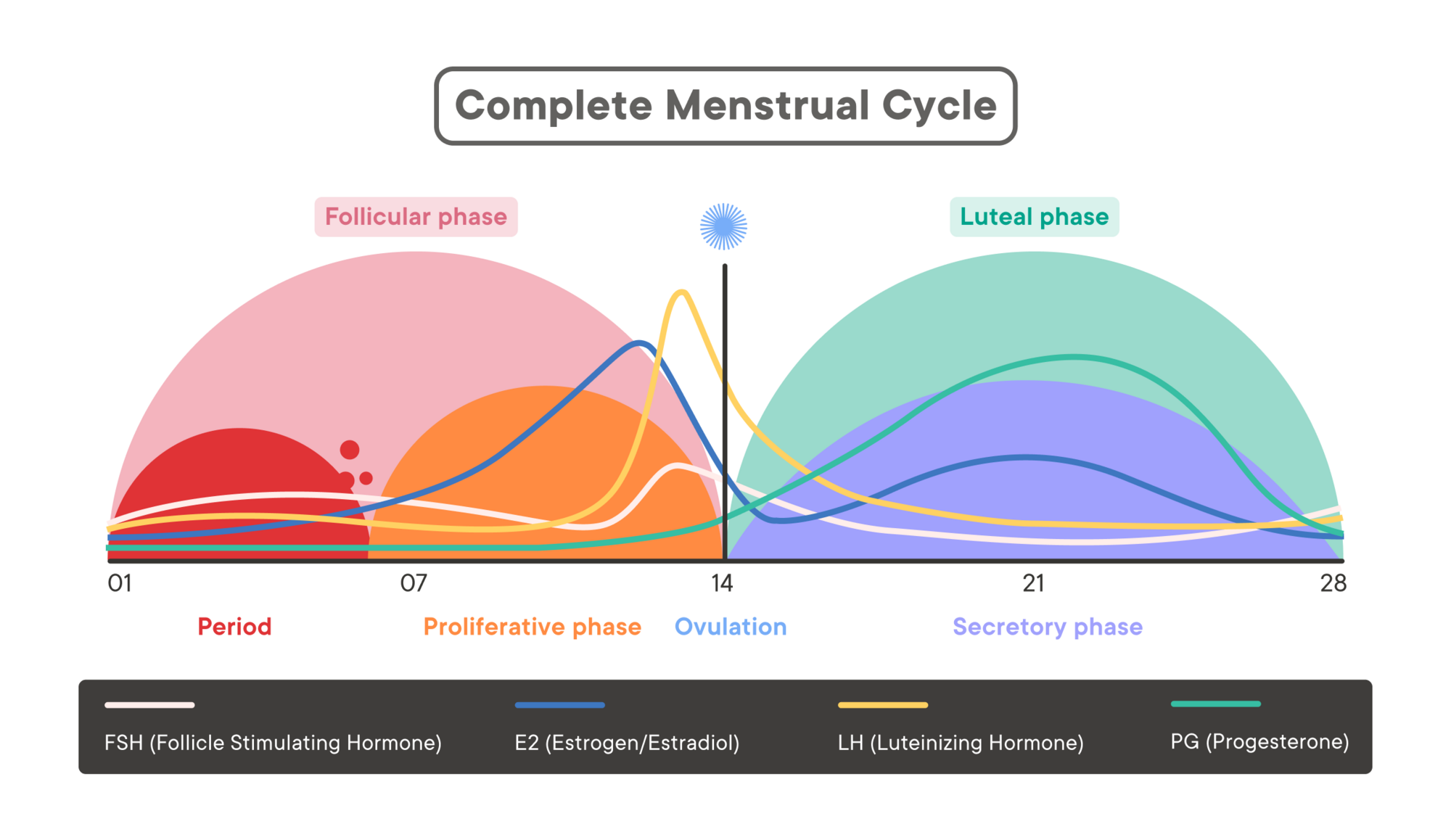
Your healthcare provider may recommend fertility treatments, dietary changes, or further testing based on these results.
Who Should Get a Female Fertility Blood Test?
Consider getting a fertility blood test if you experience any of the following symptoms or risk factors:
- - Irregular Periods: Inconsistent or absent periods may indicate ovulation issues, hormonal imbalances, or PCOS.
- - Difficulty Conceiving: If you’ve been trying to conceive for over a year (or 6 months if over 35), fertility testing can help pinpoint potential issues.
- - Age Over 35: Ovarian reserve naturally decreases with age, and a blood test can help assess fertility potential.
- - History of Miscarriage: Recurrent miscarriages may be linked to hormonal imbalances, which can be identified through blood testing.
- - Family History of Early Menopause: Testing can provide an early assessment of your ovarian reserve and predict fertility outlook.
- - PCOS Symptoms: Irregular cycles, excess hair growth, or weight gain may be linked to PCOS, which can be diagnosed through hormone testing.
Why Choose CompareHealth for Your Female Fertility Blood Test?
At CompareHealth, we provide a user-friendly platform to help you find and book fertility blood tests with leading providers across the UK. Here’s why CompareHealth is the best choice:
- - Comprehensive Test Options: Access a variety of fertility tests, from single hormone analysis to full reproductive health panels.
- - Trusted Providers: Compare and book tests with clinics known for their expertise in fertility and reproductive health.
- - Convenient Booking: Easily book your fertility blood test online with just a few clicks.
- - Affordable Pricing: Discover competitive pricing options without compromising on quality or accuracy.
- - Secure and Confidential: Your personal and health information is treated with the highest level of security and confidentiality.
Book Your Female Fertility Blood Test Today
Take control of your reproductive health by booking a fertility blood test with CompareHealth today. Discover your hormone levels, optimise your chances for conception, and take proactive steps toward a healthy pregnancy. Explore our network of trusted providers and choose the best option for your needs.
CompareHealth Picks:
If you’re looking to book a fertility blood test, here are some top choices available on CompareHealth:
- Location: London Women’s Clinic
Why: Expertise in fertility testing and treatment with comprehensive hormone panels. - Price: Fertility2U
- Why: Affordable home testing kits starting at £50, offering convenient hormone analysis from home.
- Reliability: TFP Fertility Group
Why: Known for precision and personalised care, offering full fertility blood testing with expert analysis.
By choosing CompareHealth, you're taking an important step toward understanding and managing your reproductive health. Book your test today and start your journey toward conception and family planning.


Name of test: Female Hormone Test /p>
What does it test for: Oestradiol | Follicle Stimulating Hormone | Luteinising Hormone | Progesterone | Prolactin | Testosterone | Sex Hormone Binding Globulin (SHBG) | Free Androgen Index
Description: Our convenient home test will help you to identify if a hormone imbalance could be the cause of your symptoms.
Price breakdown: Price breakdown Test cost: £29 | Clinic fee: N/A | Postage: Included | GP Appointment: N/A


Name of test: AMH (Anti-Müllerian Hormone) Home Test /p>
What does it test for: AMH Levels
Description: The AMH blood test will indicate if your levels are normal for your age and is useful if considering fertility treatment such as egg freezing or IVF.
Price breakdown: Price breakdown Test cost: £45 | Clinic fee: N/A | Postage: Included | GP Appointment: N/A


Name of test: Female Hormone Test (Premium Collection Kit) /p>
What does it test for: Oestradiol | Follicle Stimulating Hormone | Luteinising Hormone | Progesterone | Prolactin | Testosterone | Sex Hormone Binding Globulin (SHBG) | Free Androgen Index
Description: Our convenient home test will help you to identify if a hormone imbalance could be the cause of your symptoms.
Price breakdown: Price breakdown Test cost: £49 | Clinic fee: N/A | Postage: Included | GP Appointment: N/A


Exclusive: To get £5 off your order and get your test for £50 you must use discount code HT24.


Name of test: Female Hormone and Fertility Blood Test
What does it test for: Hormones
Description: This Female Hormone blood test checks your levels of female hormones which help to regulate your fertility, mood, energy levels and thyroid function.
Price breakdown: Test cost: £79 | Clinic fee: N/A | Postage: Included | GP Appointment: £45 (optional add-on)

Name of test: Female Fertility (Sex Hormones) Home Test Kit
CHT remarks: "A test that checks the female sex hormones and assess infertility risk"
Discounts available for subscriptions




Name of test: Female Hormone Blood Test
What does it test for: Oestradiol | Follicular stimulating hormone (FSH) | Luteinising hormone (LH) | Prolactin | Sex hormone binding globulin (SHBG) | Testosterone | Thyroid stimulating hormone (TSH) | Thyroxine (T4) | Free androgen index (FAI)
Description: A female hormone test can provide valuable insights into hormone levels impacting fertility, thyroid health, menopause energy, mood and more – helping you understand your body better.
Price breakdown: Test cost: £99 | Clinic fee: N/A | Postage: Included | GP Appointment: N/A

Name of test: Anti-Mullerian Hormone Home Test Kit
CHT remarks: "A test that checks your ability to produce eggs (ovarian reserve) which may be fertilised for pregnancy."
Discounts available for subscriptions


Name of test: Female Hormone Testing
What does it test for: Follicle-Stimulating Hormone (FSH) | Luteinizing Hormone (LH) | Prolactin
Description: Our female hormone testing includes a broad panel of hormones, providing key insights to empower you to be proactive about your health and fertility. Online lab results in ~2 to 5 days.
Price breakdown: Test cost: £139 | Clinic fee: N/A | Postage: Included | GP Appointment: N/A

